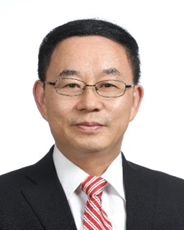
china is one of countries that are industrially produce the most amount of nanomaterials/nanoparticles (nms/nps). in order to fill in the knowledge gaps in the green production technique of nanomaterials and nano-products, we have been studying the occupationally and environmental health effects of nanomaterials in working places. to determine the composition, spatial distribution, and states of existence of nms/nps in vivo, upon entry into the body, as well as to monitor the dynamic changes of these information over time remain a challenge for the current analytical methodology due to their limited efficiently in characterizing interactions between these complex(nano)-complex(bio) systems. nms/nps are more complicated compared with the classic chemical molecules, ions or elements, while biological systems pose even greater difficulties being a complicated network of chemical/biological composition, multihierarchical structures, the highly dynamic nature, nonequilibrium states and nonlinear chemical processes, etc. thus, although some existing methods/protocols have promoted the understanding of how nms/nps interact with biological systems, almost none of these are fully adequate for quantitative analyses. recently, it was recognized that quantitative analysis method are necessary for the accurate characterization of the complicated behaviors of nms/nps in vivo. in the talk, we discuss the analytical methodology and techniques developed for the quantification of the adme processes of nms/nps in vivo, focusing on those used for nms/nps quantification in different bio-matrices, such as blood, tissues, organs and biomedical processes. by summarizing the advantages and limitations of these methods, we hope that this may assist the future development of green nanotechnologies.
references
1. wang l.m, yan l, liu j, chen c.y, zhao y.l, analytical chemistry, 90, 589-614 (2018).
2. li s.p., jiang q., liu s.l., zhang y.l., tian y.h., song c., wang j., zou y.g., anderson g.j., han j.y., chang y., liu y, zhang c., chen l, zhou g. b., nie g. j., yan h., ding b. q., zhao y. l., nature biotechnology, 36, 258-264 (2018).
3. han, x.x., li, y.y., xu, y., zhao, x., zhang, y.l., yang, x., wang, y.w., zhao, r.f., anderson, g. j., zhao, y.l., nie, g.j, nature communications, 9, 3390 (2018).
4. li s.p., zhang y.l., wang j., zhao y., ji t.j., zhao x., ding y.p., zhao x.z., zhao r.f, li f., yang x., liu sl., liu z.f., lai j.h., whittaker a. k., anderson g.j., wei j.y., nie g.j., nature biomedical engineering, 1, 667-679 (2017).
5. lu x f., zhu y., chen c y, & tao zhu, et al, nature nanotechnology, 14, 719-727 (2019).
6. wang y.l., cai r., chen c.y., accounts of chemical research, 52, 1507-1518 (2019).
|
|
yuliang zhao |
professor of chemistry, chinese academy of sciences, and director-general, national center for nanosciences and technology of china. he graduated from sichuan univ. in 1985, and received phd at tokyo metropolitan univ. in 1999. he moved to chinese academy of sciences from riken in 2001.
research interest: he proposed the toxicity study of engineered nanomaterials in 2001, and was a pioneer with innovative ideas for initiating the study on nanosafety issues. his work focuses on biological effects/activities of nanomaterials with an emphasis on the establishment of reliable and valid analysis methods for the testing of nanomaterials and nanomedicines in biological systems and understanding of the chemical mechanisms of nanomedicine and nanosafety, which fill in the knowledge gaps in nanosafety issues, and led to a new-concept nanomedicine for cancer therapeutics as well as an iso standard analytical methods, etc.
publications: he published ~580 peer-review scientific papers, 8 editorials in international journals, with citation by >37000 times (h-index 100); edited and published 13 books, 3 books in english and 10 books in chinese, with his earliest efforts on systematizing the knowledge for nanosafety in category of nanomaterials, and made significant contribution to building the knowledge framework for nanotoxicology.
invited/plenary lectures: he delivered > 340 invited and plenary lectures at conferences, universities, and institutes worldwide.
prize/awards: national prize for natural sciences (2018), the elected member of chinese academy of sciences (2017), the elected member of twas (2018), the twas prize in chemistry (2016), national prize for natural sciences (2012), china award for outstanding contribution on toxicology (2015), beijing award for leading talent in science & technology (2014), the 60 years achievement of (2009); beijing award for science and technology (2008), the chinese academy of sciences-bayer young scientist award (2006), the national natural science fund for distinguished young scholars (2005), etc.
